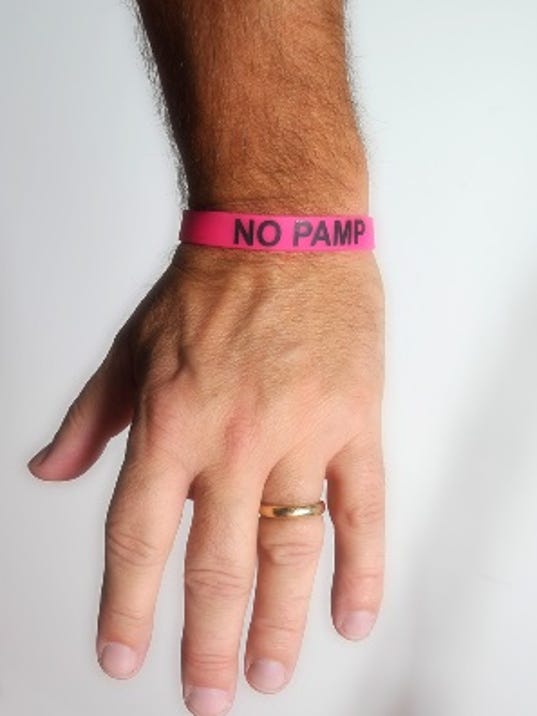Imagine waking up after a serious accident to discover you've become an unwitting subject in a medical study without ever agreeing to participate.
It's a controversial reality of emergency research, and now concern is growing that dwindling research budgets are making it harder to alert the community about the studies so people can decide ahead of time whether to opt in or out.
A case in point: a Department of Defense-sponsored study led by the University of Pittsburgh, which is currently testing the practice of giving bleeding patients plasma to help their blood clot during flights to the hospital. Each of six sites gets $20,000 out of a total $6.5 million budget for community awareness efforts such as sending out letters and paying for radio spots. People are told if they don't want to take part in the research, they can get a free bracelet to wear at all times, letting emergency workers know their wishes.
Though millions of people could potentially be trauma victims at the various sites, only 300 people at one site – members of a Jehovah's Witness congregation in Louisville – have asked for bracelets. Researchers say this meager response shows the notification has reached far too few people.
"Certainly you would like to reach everyone. But there's no way," says Laura Trachtenberg, research coordinator at the University of Louisville. "So if you do the due diligence, you've done the best you can. It's very challenging."
Fellow researcher Clifton Callaway, a professor of emergency medicine at the University of Pittsburgh, says it would be a lot easier with more research dollars. A January study in the Journal of the American Medical Association found U.S. funding for medical research overall increased 6% a year from 1994 to 2004, then slowed dramatically to 0.8% a year through 2012.Read the rest of this story HERE.
If you like what you see, please "Like" us on Facebook either here or here. Please follow us on Twitter here.





No comments:
Post a Comment